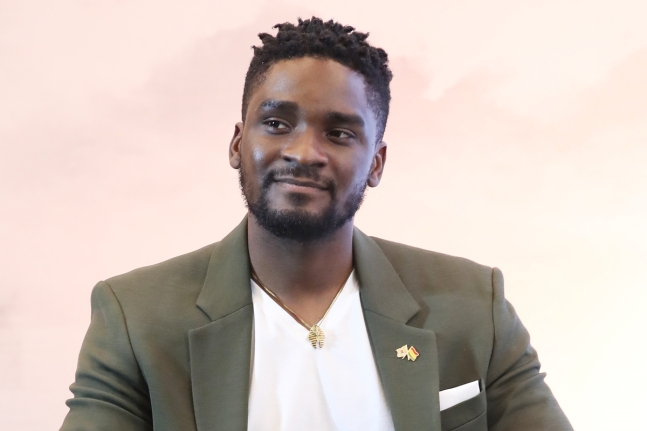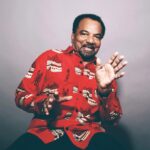Sam Okyere is a television personality and an actor in South Korea. He is also Ghanaian and has been living in the Asian country for more than a decade.
Being one of the few media personalities that is black in South Korea, Sam says living in South Korea gave him the opportunity to witness people’s attitudes towards black people over the years.
Several personalities in the Korean entertainment industry as well as people from the general public have either made remarks or done something indicative of being racist towards black people. Sam Okyere never hesitates to educate them.
Recently, some Korean students made a parody of the viral Ghanaian pallbearers by doing blackface. Sam Okyere raised concerns about their action on social media. Thinking he did the right thing, others thought he was starting a controversy.
‘I think a lot of people misunderstood what was going on because a lot of people thought the intent was to call out the kids and bash them but that was not the intended purpose. I actually understand where the kids were coming from.
They didn’t mean to cause any harm. they thought if we are doing a parody we might as well do it in detail. It was coming from a misinformed place but not a place of blatantly wanting to mock black people.’
Racism in South Korea is on the mend though progress is steady. While the influx of people from all over the world including Africa continue to troop into the Asian country, there are still some people who remain racist (nothing peculiar to only South Korea however) towards Africans.
Sam Okyere says when he arrived in 2009 to South Korea on a scholarship programme, seeing a black person was rare.
‘When I first got here there weren’t too many foreigners here but that number has grown tremendously over the past couple of years. I think we are pushing towards 3 million foreigners now in South Korea.
When I was in school I was pretty much the only black person on campus or in my entire department but it’s different now. There are more people coming out here to study and what not, so the number has steadily increased.
So if you are here you are going to meet people from Liberia, Ghana, Rwanda, and from other parts of the continent.’
However, though diverse people from all over the continent were moving to South Korea, Sam Okyere noticed that South Koreans may have a warped idea of who a black person is because of what they had as entertainment on their screens and Africans really didn’t know about the South Koreans either.
‘When I ask my Korean friends what informs your identity or your image of a black person, they say, the only opportunity we have to meet black people is through media; movies and dramas. So the portrayal of that is what they eventually get to understand is what the image of a black person is.
It’s the reason why I decided to go into the entertainment industry. I realised there wasn’t really a lot of representation; a lot of Africans didn’t really know about South Korea and a lot of Koreans have never really had an opportunity to get to know Africa and the different cultures that are there.
He explains that ignorance from South Koreans comes as a result of one main thing: lack of exposure.
‘They haven’t really had an opportunity to meet so many different people. For example, if you look at Africa, there are so many countries but you don’t really have somebody that’s teaching them that variety. So it’s easy for a Korean who has not been exposed to subjects like that to just accept what they have probably seen on television.’
Acting as the medium and bridge between Ghana, Africa and South Korea, Sam Okyere dominates stages and television series doing exactly what he aimed to do, representing to educate people.














